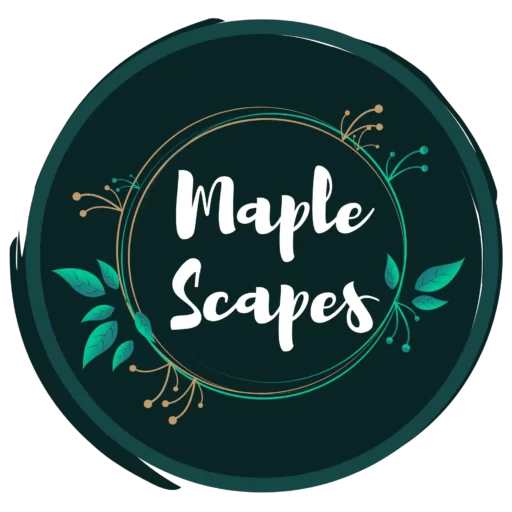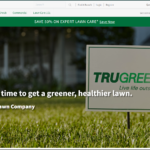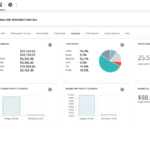Starting a landscaping business in Connecticut can be a fantastic opportunity for entrepreneurs who love working outdoors and transforming spaces. Connecticut landscaping also comes with lots of paperwork.
Whether you’re planting gardens, installing patios, or applying lawn treatments, Connecticut has clear rules to help protect both you and your customers. For that, you need to understand the licensing, certification, and registration requirements in the state, including the Connecticut arborist license.
This article will guide you through the essentials so that you can get your landscaping business up and running legally and smoothly.
Licensing Requirements for Landscaping Businesses in Connecticut
Landscaping in Connecticut is acknowledged as a skilled profession and some activities might need special permits or registrations, especially for services like landscaping Waterbury CT.
What you should know is as follows:
You might need a Home Improvement Contractor (HIC) Registration with the Connecticut Department of Consumer Protection (DCP) if you plan to provide services like lawn installation, tree, shrub, or flower planting, as well as other significant landscaping work, including lawn care Norwalk CT.
While Connecticut has no separate “landscaping contractor license,” many landscaping services fall under home improvement work, including landscaping Norwalk CT.
There are no specific tiers or square footage categories as seen in some states, but you must register if your business offers services like:
- Lawn installations
- Tree and shrub planting
- Hardscape installation (like patios or retaining walls)
You can register as a HIC on the CT DCP eLicense website:

2. Pesticide Applicator License (for pest control)
You might need a Pesticide Applicator License if you plan to apply pesticides as part of your lawn care services (such as weed control, insect treatments, or fungicides). The Pesticide Applicator License is issued by the Connecticut Department of Energy and Environmental Protection (DEEP), and it may also apply to landscaping Hamden CT services.
There are two types:
- Supervisory Pesticide Applicator Certificate – (for those in charge of pesticide application).
- Operational Pesticide Applicator Certificate – (for workers applying pesticides under supervision).
To qualify, you need to:
- Pass the main exam and a category exam based on the type of pesticide work you’ll perform.
- Attend pesticide safety meetings and stay updated on best practices.

For details, visit: https://portal.ct.gov/DEEP/Pesticides
3. Nursery Dealer License
If you plan to sell nursery stock (such as trees, shrubs, or other plants), register as a Nursery Dealer with the Connecticut Agricultural Experiment Station (CAES), which can also benefit those offering landscaping West Hartford services.

Apply here: https://portal.ct.gov/CAES
4. Surety Bond and Insurance Requirements
Connecticut requires home improvement workers, including landscapers, to carry proper insurance and, in some cases, a surety bond:
The Surety Bond: While not mandatory for all, a surety bond (often around $15,000) can protect your clients and it is recommended if you handle larger projects.
Insurance Requirements-
General Liability Insurance:
- $100,000 minimum for bodily injury per occurrence
- $50,000 minimum for property damage per occurrence
- $5,000 minimum for medical payment coverage
Carrying insurance not only protects your business but also builds customer trust.
5. Business Registration
Before any legal operations in Connecticut, you need to register your business entity with the Connecticut Secretary of the State (SOTS). This applies whether you’re a sole proprietor, LLC, partnership, or corporation, and is a necessary step for any Connecticut landscaping business.

You can register online at: https://portal.ct.gov/SOTS.
Important Government Links You Should Know
Here’s a list of official websites to help you navigate the licensing and registration process in Connecticut:
- Consumers can verify a contractor’s HIC registration through https://www.elicense.ct.gov/lookup/licenselookup.aspx
- Refer to the DRS’s https://portal.ct.gov/drs/publications/tssns/tssn-43 for comprehensive tax guidelines.
These sites will guide you through verification, costs, and timelines.
Additional Resources and Tips
Application Forms and Fees:
- HIC Registration: ~$220 every two years.
- Pesticide Applicator License: Exam fees differ; renewal fees apply.
- Nursery Dealer License: ~$50–$150 depending on the size of the operation.
Timelines:
- HIC registration: Processed in about 2–4 weeks.
- Pesticide exams: Offered multiple times a year; certification issued after passing the exam.
- Nursery license: Valid January–December; renewed annually.
Landscaping Associations in Connecticut:
Joining a professional association can help you stay updated on industry standards, connect with people, and boost credibility. Some useful groups include those that provide resources for obtaining and maintaining a Connecticut arborist license.
Here’s a quick checklist:
1. Register your business with SOTS → Get your legal entity set up.
2. Register as a Home Improvement Contractor (if applicable) → Apply with DCP.
3. Get a Pesticide Applicator License → Only if you handle pesticides.
4. Apply for a Nursery Dealer License → If selling plants or nursery stock.
5. Secure proper insurance and consider a surety bond → Protect yourself and your clients.
6. Stay connected with industry associations → Keep learning and growing.
For more insights on regional regulations, explore our complete guide to Delaware landscaping requirements.






